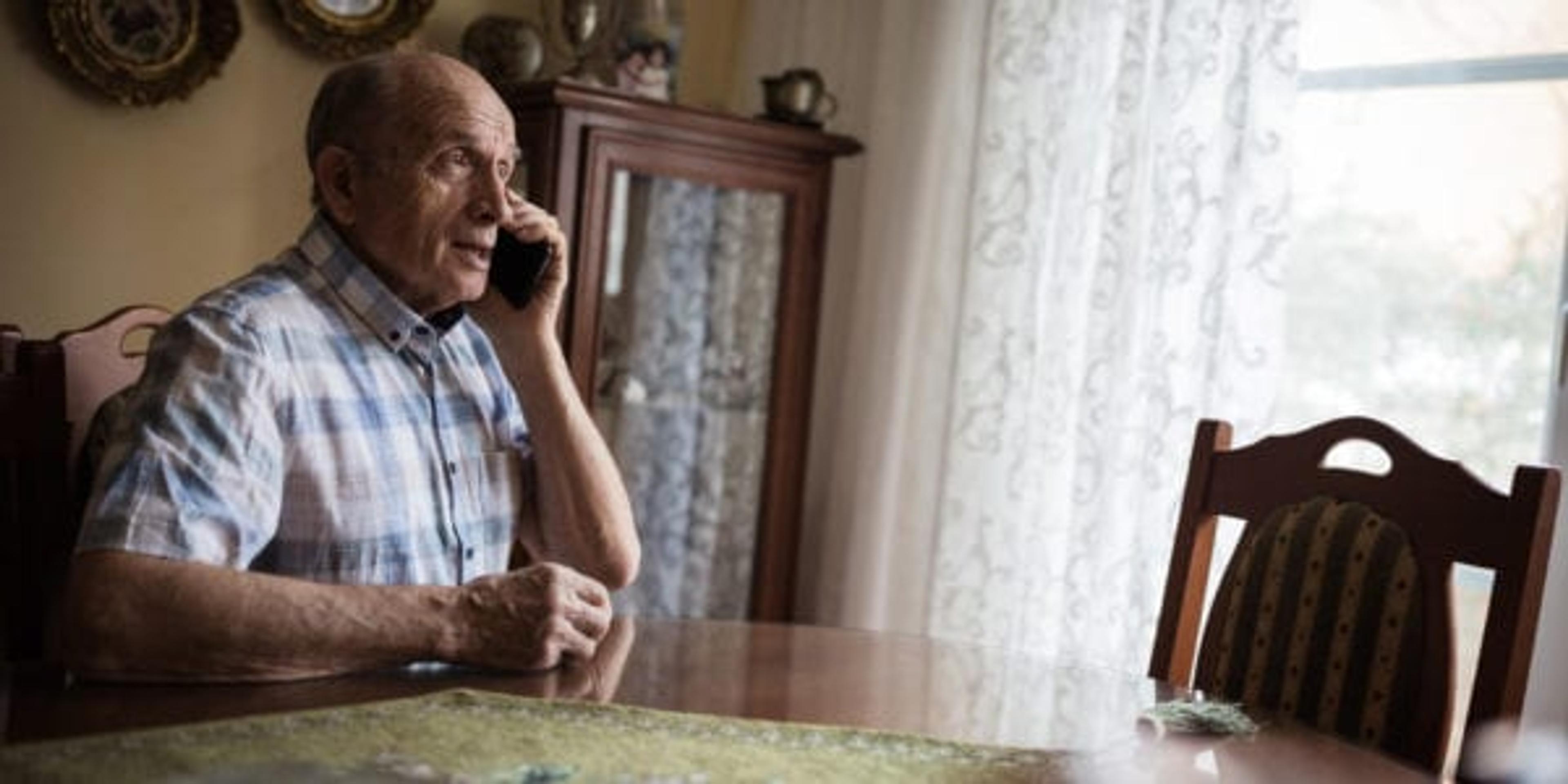Checking In On the Mental Health of Older Loved Ones

Julie Bitely
| 3 min read

Under normal circumstances, older adults are at an increased risk for loneliness and social isolation, according to the Centers for Disease Control and Prevention.
During a global pandemic, seniors who are staying safe by staying at home have, in many cases, lost the ways they connect with others. Morning coffee klatches, religious services, visits from family and even grocery shopping at the store have been put on hold, leaving seniors at higher risk for feelings of isolation.
Check-in regularly on loved ones living alone
Long-term, those feelings of loneliness can lead to serious health concerns, including depression. It’s important that we’re all checking in on each other regularly, especially our older adult relatives and friends living alone. There are many safe ways to do this– virtually using video conferencing technology or simply picking up the phone for a chat.
Listen for depression signs
As you’re making contact with loved ones, make sure to keep in mind signs of depression, which could look different for older adults, according to the National Institute on Aging. These may include:
- Feeling tired
- Difficulty sleeping
- A grumpy or irritable mood
- Confusion or attention problems
Other signs from the CDC include feelings of hopelessness, pessimism, guilt, worthlessness, helplessness, loss of interest in activities or hobbies, changes in appetite and unexplained aches and pains. A loved one expressing thoughts of suicide needs immediate attention from a medical professional.
Encourage seeking treatment
If any of these themes emerge during your conversations, encourage your loved one to seek help. According to the CDC, older adults are often undertreated for mental illness. This is due, in part, to a reluctance to seek help based on the perceived shame and stigma surrounding mental health. Another factor for older adults could be a lack of awareness that depression is very treatable.
Many health care providers are seeing patients virtually, including mental health professionals. The first step is making an appointment to talk through concerns with a primary care physician. Your loved one’s doctor can help determine whether the depression is caused by a medical condition. Certain medications have been linked to depressive symptoms. Older adults can also sometimes fall victim to vascular depression, which is caused by changes in the brain and body caused by aging.
Working with a mental health professional, depression can often be successfully treated through a combination of antidepressant medications and cognitive behavioral therapy, which can be accessed virtually. Lifestyle changes such as regular exercise and eating a balanced diet have also been shown to have a positive effect on overall mental health.
How to get help
Blue Cross Blue Shield of Michigan and Blue Care Network have expanded coverage for behavioral health services such as therapy. Learn more about how your behavioral health coverage works here.
If you or someone you love is in crisis, the National Suicide Prevention Lifeline is available 24/7 at 800-273-8255. Blue Cross and Blue Care Network members are also able to call behavioral health access lines, staffed 24/7 (press 1 after dialing for immediate care):
- PPO members: 1-800-762-2382
- HMO members: 1-800-482-5982
Related:
Photo credit: Dobrila Vignjevic





